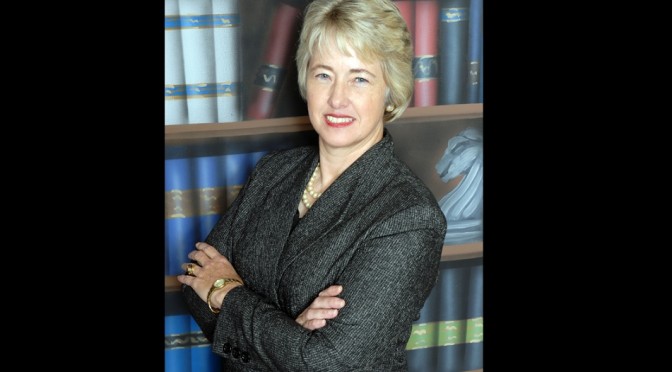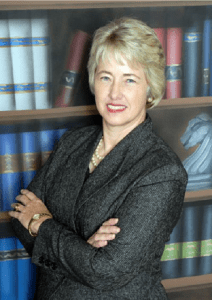In the Fifteenth installment of the 2013 Texas Leftist Candidate Questionnaire, we hear from Hon. Annise D. Parker, current Mayor of Houston, and running for her third and final term.
Please note: Responses have been received directly from the candidate, and have been posted ver batim from the email received. This is done out of fairness to all candidates. Publishing these responses does not constitute an endorsement, but will be considered during the endorsement process.
TL: What is your name, as it will appear on the ballot?
AP: Annise D. Parker
TL: Are you a current or former elected official? If so what office(s)?
AP: I am currently Mayor of Houston.
TL: As a political candidate, you clearly care about what happens in certain levels of government. In your own words, why is government important?
AP: In order for human beings to live in concert with one another, you have to have government. It’s a mechanism for deciding what you do as a community. I have been frustrated that, as a country, we seem to be losing that focus on community in favor of a more consumer-driven focus on individuals wanting to pay only for the services they use. It is my hope that people will think more about how we can re-engage as a community and re-engage with local government in service of community. Government should be run efficiently and effectively. I have applied many approaches I’ve learned in the business world to achieve that. But ultimately, government is a service organization, not a business. It really is about making our communities stronger.
TL: If elected, what is your top priority in office for the upcoming term? Describe how you plan to accomplish it.
AP: Continue to create jobs. We are seeing very good results from Hire Houston First, a program I started to give preference to firms that hire local workers when they apply for city contracts. I will continue the reforms we started in the Office of Business Opportunity – the former Affirmative Action Department. We expanded our overall city-contracting goal for small, minority, woman-owned businesses to 34 percent. We’ve helped secure more than $25 million in private funds for small business loans. We’ve provided incentives that have attracted more than $2.2 billion in economic development for the city. And we’ve worked with labor unions to provide apprenticeship programs on city-funded projects.
Continue to reduce crime and improve public safety. Since I became mayor, Houston’s overall crime rate is down more than 8 percent. We’ve modernized public safety, protected police officers from layoffs and increased the number of officers on the street. We’ve revamped the police radio and technology system, bulldozed 2,000 crack houses and dangerous abandoned buildings, opened our new Sobering Center so that police officers can focus more of their time on fighting crime, made substantial progress on creating an independent crime lab (separated from the police department), put a plan in place to eliminate the backlog of sexual assault kits and more.
Use resources available to the city to support our children’s education. Although the city is not charged with education in the traditional sense (setting the curriculum, hiring teachers, etc.) I’ve made sure that our resources are working to strengthen schools and help schoolchildren. In August we distributed 25,000 backpacks full of school supplies to children in need. I appointed a Chief Education Officer to coordinate city initiatives around education. We’re working to coordinate infrastructure projects near schools and keep our kids safe when they go to school. We’re building new libraries and funding after-school programs. We’re working with partner organizations to help children stay in school and gain the necessary skills to find good jobs when they graduate.
TL: With the exception of city government and some other select businesses, Houstonians can still be fired for being lesbian, gay, bisexual or transgender because we do not have a comprehensive non-discrimination ordinance for general employment. This lags behind other Texas cities such as Dallas, Austin, and Ft. Worth. Do you support a comprehensive non-discrimination ordinance for the city of Houston? If not, please explain why. If so, please explain how you would work to pass such a measure.
AP: I absolutely believe we should pass an anti-discrimination ordinance. Houstonians deserve those protections. Passing the ordinance will require agreement from all councilmembers, and when we have the support necessary we can move forward.
TL: There have been an alarming number of complaints filed against officers in the Houston Police Department, accused of unwarranted police brutality towards citizens. A disproportionate amount of this violence occurs in minority communities, and in the vast majority of these cases, officers have gone unpunished. As a result, these incidents cause a cycle of mistrust between Houstonians and the very officers sworn to protect them. What can you do to increase oversight of the Houston Police Department, and help ensure that these incidents do not continue?
AP: The Chief of Police, his Command Staff and I take very seriously any allegation of police brutality. That’s why it is simpler and easier than it has ever been before to bring a complaint against an officer. We revised the complaint process, removing language on the forms that threatened perjury charges for unproven allegations. We made complaint forms available for the first time through community organizations like NAACP, Urban League and LULAC. We created the Independent Police Oversight Board, whose community panelists review allegations of police abuse, use of force and all discharges of weapons. We have begun to deploy body cameras among patrol officers, with the goal of having all officers wear them as soon as financially possible. We are purchasing new TASERS that limit the duration of the electrical charge administered. And we have dealt swiftly and decisively in removing officers who have violated the rights of citizens.
TL: What makes you the best candidate for this office?
AP: Houston is leading the nation in job creation and the vast majority of ways that people rank cities. I’m running because I believe we can do even better. During my two terms as Mayor, Houston’s city government is borrowing less and doing more on a pay-as-you-go basis. We’ve created a dedicated fund for street repairs and flood prevention. We’ve secured funding for new libraries and laid the foundation for a parks and trails system that most cities can only dream of. We put more police officers on the street and are working to make our city safer. We’re demolishing crack houses and dangerous abandoned apartment complexes – and we’re modernizing our police and fire stations. I want to help the best city in America get even better.
TL: When not on the campaign trail, how do you like to spend your free time?
AP: Between my job as mayor and my campaign, free time is a real luxury! I spend as much time at home with my family as I can – and I relax by reading and working in the garden tending my cacti, succulents and orchids.
Thanks to Mayor Parker for her participation.

